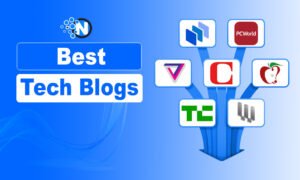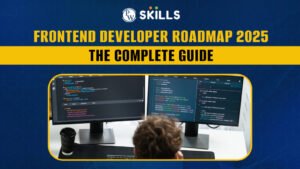Building a developer brand is about showcasing your skills, sharing knowledge, and connecting with others in the tech community. Here’s how to get started:
1. Focus on Your Strengths
Identify your technical skills and choose a niche or area of expertise. What sets you apart? Are you a React performance expert? Do you specialize in web accessibility? Defining your niche helps you stand out in the crowded developer space.
2. Create a Mission Statement
A mission statement is a brief, clear statement of what you do and how you help others. For example, “I optimize web apps for speed and accessibility” or “I help startups build scalable web applications with modern JavaScript frameworks.” This mission should reflect the problems you solve and the value you bring.
3. Be Consistent
Consistency is key to building recognition. Use the same profile picture, messaging, and style across all your platforms. Whether it’s your LinkedIn profile, GitHub, or personal website, consistency helps reinforce your identity.
4. Leverage Platforms
To get noticed, showcase your work on platforms like GitHub, improve your LinkedIn profile, and engage with developers on Twitter, Stack Overflow, or Reddit. These platforms offer valuable opportunities to connect, share your work, and demonstrate your expertise.
5. Share Content
Create content that reflects your knowledge and helps others grow. Write technical blogs, contribute to open-source projects, or speak at events. The key is to share your experience, solve problems, and build a reputation as a helpful, knowledgeable developer.
Quick Tip: Start Small
Start by focusing on one platform, one topic, and one way to share your knowledge. Consistency and authenticity are crucial to building trust and standing out in the developer community.
How to Build Your Developer Brand
1. Identify Your Skills and Focus Area
You don’t need to be a jack-of-all-trades. Focus on your strengths and the technologies or problems that excite you most. Whether it’s optimizing React apps for performance or making websites more accessible, decide what area you want to specialize in. The clearer your focus, the easier it is to build your brand.
Also, consider who you want to reach. Are you targeting startup founders? Other developers? Junior coders looking to level up? Knowing your audience will help guide your branding efforts.
Here’s a simple breakdown:
| Skill Level | Technical Skills | Community Involvement |
|---|---|---|
| Expert | Primary programming languages | Open-source contributions |
| Proficient | Frameworks & tools | Technical writing |
| Learning | New technologies | Public speaking |
2. Write a Personal Mission Statement
Your mission statement should be your “elevator pitch.” Keep it concise and focused on the value you provide. Instead of saying, “I’m a full-stack developer,” try something like, “I help startups build scalable web apps with modern JavaScript frameworks.”
Think about the unique value you offer. Do you simplify complex technical problems? Are you an expert in a specific technology? Highlight that in your mission statement.
3. Keep Your Brand Consistent
Brand consistency is what makes you recognizable. Here’s how you can apply it to your developer presence:
- Pick one professional headshot and use it across all your platforms.
- Stick to your messaging about what you do best. Be clear and concise.
- Create content that aligns with your expertise. For example, if you’re known for React development, share React-focused content.
Consistency builds trust and helps people recognize you more easily. To further refine your brand, choose 2-3 colors and a writing style that feels natural to you.
4. Best Platforms to Promote Your Developer Brand
GitHub: Showcase Your Work
GitHub is the go-to platform for developers to share their code. Treat your GitHub profile as your online resume. Make sure your README is polished, and pin your best projects to highlight your skills. Your contributions on GitHub speak volumes about your coding capabilities.
LinkedIn: Highlight Your Experience
LinkedIn allows you to connect with potential employers, clients, and collaborators. Don’t just stick with a generic job title—showcase your expertise in your headline. For example, “Backend Developer Who Makes APIs Scalable.” Feature your GitHub projects, certifications, and posts that highlight your skills and experience.
Twitter & Developer Communities: Engage and Share
Twitter is great for networking and sharing quick insights. Join coding discussions, share your latest project, or tweet about problems you’ve solved. Participating in communities like Stack Overflow and Reddit will help you establish yourself as an expert in your field.
5. Share Content to Build Your Reputation
Start a Blog
A blog is a powerful tool to share your technical knowledge. Don’t write theoretical posts—focus on real-world problems. Platforms like Dev.to and Hashnode are perfect for reaching the developer community. When you write about the problems you’ve solved, be sure to include practical examples like code snippets, before-and-after performance stats, or debugging techniques.
Pro Tip: Engage with your readers in the comments. Answer questions, provide additional insights, and keep the conversation going.
Contribute to Open-Source
Open-source contributions help you collaborate with other developers and grow your reputation. Start with “good first issues” to familiarize yourself with the project, and make meaningful contributions. Whether it’s fixing bugs or improving documentation, every contribution counts.
Speak at Meetups or Events
Public speaking might feel intimidating, but it’s a great way to showcase your expertise. Start with smaller meetups or lightning talks on topics you know well. Share stories of real problems you’ve solved or tools you’ve built. If you’re not ready for in-person events, try hosting online workshops or webinars.
6. Use Tools to Help Build Your Developer Brand
daily.dev: Build Your Network
daily.dev is a platform that curates technical content based on your interests. It allows you to stay updated with industry trends while sharing your own insights. You can join discussions and showcase your expertise with minimal effort.
Analytics Tools: Track Your Progress
Use Google Analytics to measure how people interact with your content. Key metrics to watch:
- How many people read your posts
- How long they stay on your content
- How often they share your posts
Use these insights to refine your content strategy. If you see a specific type of content getting more attention, create more around that topic.
Conclusion: Start Building Your Brand Today
Building a developer brand is not a sprint; it’s more like tending to a garden. Focus on solving real problems, connecting with others, and consistently sharing valuable content. Here’s a simple action plan:
- Pick a technical topic you know inside and out.
- Choose a platform to share your knowledge (blog, GitHub, etc.).
- Set aside specific times each week to create content and engage with the community.
The key is to keep it simple and stay consistent. Your reputation will grow as you share helpful content, contribute to open-source, and engage with other developers. Over time, your brand will speak for itself.





